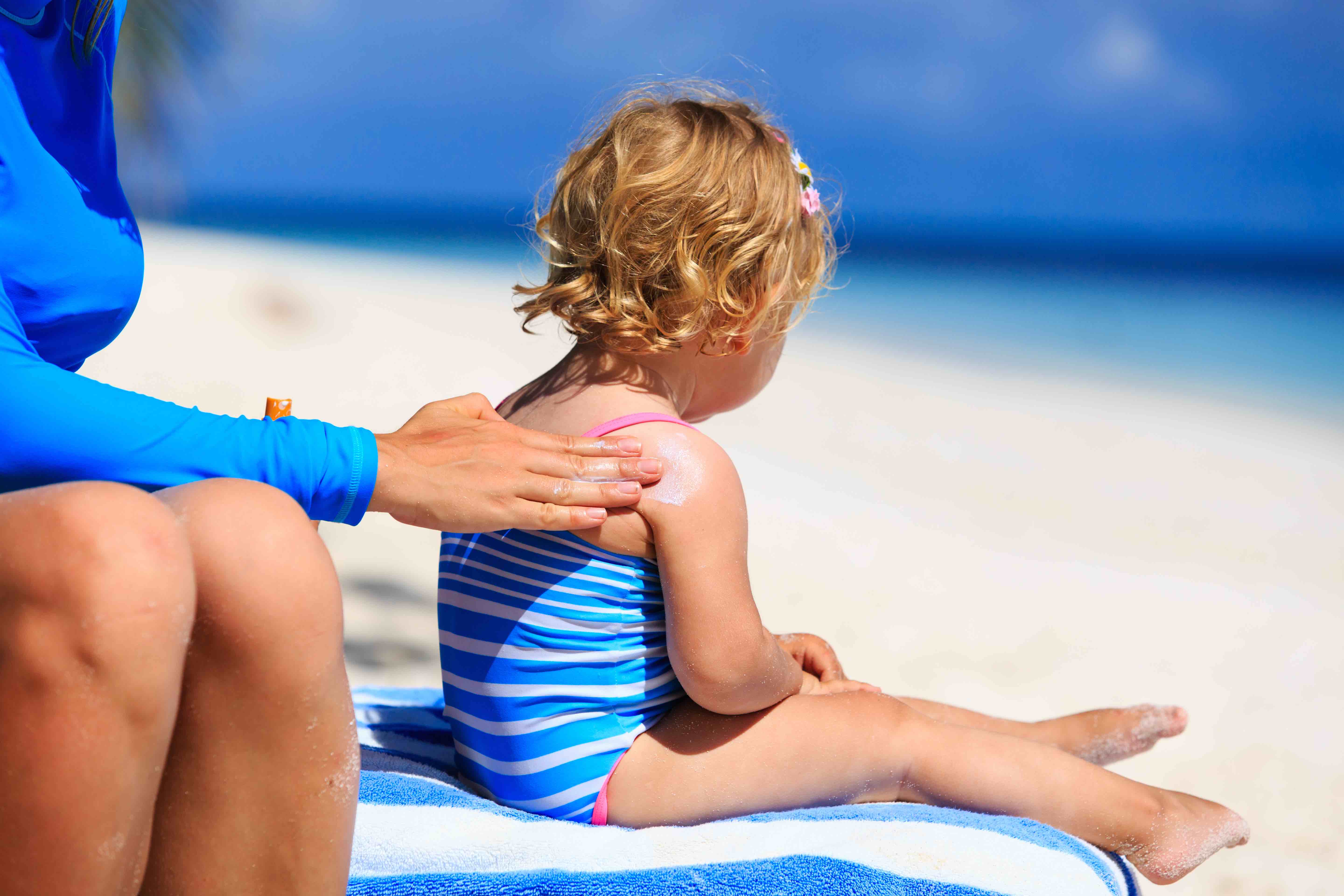NHS England and Met Office issue warning about parents “relaxed attitude” to sun safety
 NHS England and the Met Office have issued a warning about parents “worryingly relaxed attitude” to sun safety as new research revealed that one in 10 parents with children aged two to seven years old encourage their child to sunbathe.
NHS England and the Met Office have issued a warning about parents “worryingly relaxed attitude” to sun safety as new research revealed that one in 10 parents with children aged two to seven years old encourage their child to sunbathe.
The warning comes as a study, conducted for both bodies and launched in conjunction with the #CoverUpMate skin cancer campaign, found that 37% of parents mistakenly believe that a sun tan is a sign of good health, despite 47% of respondents understanding that a sun tan is a sign of the skin being damaged by UV rays, while 7% have never applied sunscreen to their children.
Of the 1,001 parents surveyed, who have children up to the age of 11, 34% said they thought a sun tan helps build resistance to the sun, and when asked about what precautions they take against the sun, more than a fifth said they do not apply sunscreen on their child until they are visibly starting to burn – while 20% said they wait until their child asks for sunscreen before applying it.
Understanding the damage caused by UV rays
Clare Nasir, a Met Office meteorologist, said: “Protecting against skin cancer isn’t something parents should leave to chance. UV levels are usually highest between May and September. Clouds don’t always stop UV rays and, unlike the sun’s warmth, it’s difficult to know when they may be harming you.”
The Met Office believes a lack of knowledge among parents of the damage the sun can inflict could be behind the figures, with 15% not knowing you could still be exposed to UV rays on cool or cloudy days, 21% not knowing they are most at risk from UV rays between May and September, and many not knowing which days to give their children extra care, with only 19% checking the UV forecast each day.
The survey also discovered that 7% of parents with children aged six to 11 have allowed their child to use a sunbed, and that by the time their child has reached eight years old, 23% expect their child to apply sun lotion themselves.
Nigel Acheson, NHS England South region medical director, said: “It’s important that parents take extra care to protect their babies and children. Their skin is much more sensitive than adult skin, and damage caused by repeated exposure to UV could lead to skin cancer developing in later life.
“If the Met Office UV forecast is moderate or high, children aged under six months should spend time in the shade and out of direct sunlight – particularly from 11am to 3pm. We should all remember to cover up with suitable clothing and wear sunscreen with a good UVA protection.”
Industry reaction
The research also revealed that 40% of children have experienced sunburn in the past two years and that the “vanity factor” could be behind the lax sun lotion application, with 44% of those surveyed commenting that a tan looked attractive.
Nina Goad, from the The British Association of Dermatologists (BAD), also commented on the survey: “Parents receive a lot of health messages that they have to absorb and pass on to their children, and sometimes these messages can be conflicting, which adds to confusion.
“However, there is one simple message for parents – sunburn and tanning are both signs of sun damage and are dangerous. This doesn’t mean that children shouldn’t go outside and play, just that basic precautions are taken when it's sunny.
“By instilling good sun protection behaviour at an early age, you give your children the best possible chance of avoiding health issues in the future, particularly skin cancer, the most common cancer in the UK.”
25% of children are deliberately avoiding sunscreen on holidays
And its not just parents behaving badly when it comes to suncare. Oliver’s Travels polled over 400 families across the UK to lift the lid on Britain’s holiday habits. When they asked parents what the naughtiest thing their children have done on holiday a staggering 25% responded with; “deliberately avoiding sunscreen”.
Oliver Bell from Oliverstravels.com said “It’s definitely concerning to hear that so many children are deliberately trying to avoid protecting their skin. For kids, it can be a hassle to put on and to appreciate the importance of protecting themselves. Either way, this number is too high for comfort so something clearly needs addressing by parents. Children and teenagers might need stronger reminders or a helping hand, but setting a good example yourself and making it part of the daily holiday routine are great ways to help them learn and get into good habits.”

